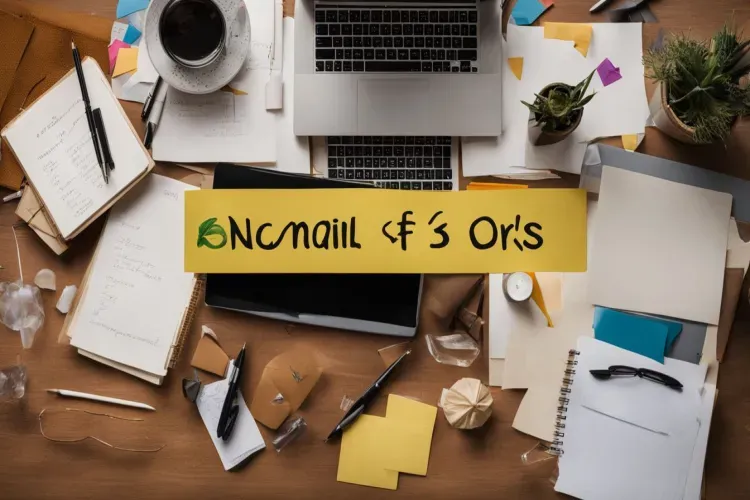Wholesale Real Estate Explained
Real estate wholesaling is a way to make money by finding deals on houses and selling them fast. Think of it as being the middle person who finds a good house deal, puts it under agreement, then sells that agreement to someone who wants to buy the house for more.
This process can be quick, allowing you to profit without ever owning the house. Want to learn how it’s done? Read on for all you need to know about starting in wholesale real estate.
Definition and Fundamentals of Real Estate Wholesaling
Real estate wholesaling is like being a middleman in property sales. You find a good deal on a house, usually one that needs work, and get it under contract at a low price. Then, you sell this contract to someone who wants to fix up the place and sell it for more.
The key is securing deals on distressed properties below their full market value. Wholesalers don’t actually buy the houses themselves – they just secure the right to buy them, then pass this right onto another buyer at a higher price.
In wholesaling real estate, the art lies not in owning, but in swiftly passing ownership to another for profit.
I once made $15,000 by simply connecting a seller with an eager investor. This process took less than two weeks from start to finish. My role was essentially finding gold mines disguised as run-down homes and alerting those with shovels ready to dig.
It requires skill in spotting great deals and connecting promptly with interested cash buyers or investors looking for their next project.
Real Estate Wholesale Transaction: An Example
A wholesaler finds a house being sold for less than its value. It needs work but has good potential. They talk to the homeowner and agree on a low price. Then, they sign a contract with the seller, making sure they can sell this deal to someone else.
Next, the wholesaler looks for an investor interested in fixing up houses to sell them for more. They show the investor all about the house and how much it could be worth later. The investor likes it and agrees to buy the contract from the wholesaler for a bit more money than what was first agreed with the homeowner.
This way, without ever owning the house, the wholesaler makes profit by connecting a seller who wants out fast with an investor looking for their next project.
The Advantages and Disadvantages of Wholesale Real Estate

Wholesale real estate has its good and bad sides. On one hand, you can make money quickly without needing to buy a house yourself. On the other, it can be hard to find houses to sell and people who want to buy them.
If this catches your interest, keep reading for more insights!
Benefits of Engaging in Wholesale Real Estate
Wholesale real estate is a great way for people to start investing without much money. You find properties that owners need to sell fast. Then, you put these houses under an agreement at a low price.
After that, you sell this contract to someone who wants to buy the house, like an investor. This means you can make money quickly without buying any property yourself.
I once found a house that needed lots of repairs in a good area. The owner wanted to sell it quickly. I got the house under contract for a low price and then sold my rights to buy it to an investor for more money than I promised the seller.
This way, I made profit without needing lots of cash or a loan from the bank. Wholesale real estate lets people close deals fast in any market condition and earn from big opportunities with little starting cash.
Challenges Faced in Wholesale Real Estate
One big problem in wholesale real estate is finding homes that people need to sell quickly or that aren’t on the market yet. It takes a lot of work and time. Wholesalers spend hours searching and talking to potential sellers.
They look for properties in tough situations that make owners want to sell fast.
Another challenge is getting together a list of investors who are ready to buy these deals. This task also eats up time because wholesalers must network, advertise, and often convince buyers why these investments are good picks.
Plus, there’s always a risk they might lose their deposit if a deal falls through before it closes.
Key Steps for Success in Wholesale Real Estate

To win in wholesale real estate, follow these steps: Start by learning all you can about the market. Find homes that need work but have good potential. Check every detail of a deal before you say yes.
Get contracts on these homes. Then, find people with cash who want to buy them from you. Lastly, learn how to pass your contract to the buyer smoothly.
This path makes sure you do well in wholesale real estate… Keep reading for more tips and ways to move forward!
Initial Research for Wholesale Real Estate Success
Starting wholesale real estate begins with good research. This first step helps you find those deals that can turn in a nice profit. Here’s how to get it right:
- Understand the market – Know your area well. Look at what properties sell fast and for how much. This knowledge guides where you should search for homes.
- Find distressed properties – These are homes that might not look nice or the owner wants to sell quickly. They often sell for less money, making them perfect for wholesaling.
- Learn about market values – You need to know the worth of homes in your area. Check sold prices online or talk to a real estate agent. This helps you spot good deals.
- Network with other investors and agents – They can offer tips and may even share leads on potential properties.
- Use online tools and databases – Websites help you locate properties under contract or direct you to motivated sellers.
- Look at lots of properties – The more you see, the better you understand what makes a great deal.
- Talk with sellers directly – Sometimes, homeowners are ready to sell but haven’t listed their property yet.
- Prepare your funding ahead of time – Know where your money will come from when it’s time to seal the deal.
- Keep learning about real estate laws – Rules change, and staying updated is key to avoiding legal issues.
- Write down everything you learn – Keeping notes helps remember what works best and what doesn’t.
Doing this groundwork has helped me spot opportunities others miss and avoid costly mistakes early on in my wholesaling journey.
Identifying Distressed Properties for Wholesaling
Finding homes for wholesaling starts with looking for distressed properties. These are homes that can be bought below their usual value. Here’s how marketers and real estate agents can spot them:
- Search in areas where owners might need to sell fast. This could mean places where jobs are leaving or neighborhoods that have seen better days.
- Look at public records for signs of distress, like foreclosure notices or tax liens. These documents show owners might be willing to sell at a lower price.
- Drive around target neighborhoods. Look for homes that seem uncared for, with overgrown lawns or lots of repair needs.
- Use online tools to find properties listed as pre – foreclosure on real estate websites. These sites can help pinpoint homes at risk of being taken back by banks.
- Network with professionals who deal with property distress often, such as lawyers handling divorces or bankruptcy cases.
- Check out auction sites and bank listings for houses repossessed by lenders.
Each step brings you closer to finding a home someone is motivated to sell at a bargain price. Then you, the wholesaler, can step in with an offer that might just be the solution they’re looking for.
Due Diligence in Wholesale Real Estate Deals
Doing due diligence in wholesale real estate deals means checking everything carefully. This process helps make sure the deal is good before moving ahead. Here are important steps to follow:
- Verify property details. Look at the property’s size, condition, and location. Make sure this info matches what the seller says.
- Check market value. Look at prices of similar houses in the area to see if you’re getting a good deal.
- Inspect the property. If you can, visit the property yourself or hire someone else to do it. They should look for any big problems with the house.
- Review legal stuff. Make sure there are no claims or debts against the property that could cause trouble later.
- Understand repair costs. Figure out how much money it will take to fix the house up.
- Know your buyers’ needs from my own experience. Having a list of what cash buyers want helps match them with the right property quickly.
- Confirm financing options for buyers who might need a mortgage even though many buy with cash.
- Calculate your profit margin clearly so you know the minimum price you need from selling the contract.
These steps help make sure that each wholesale real estate deal is a good choice before you go all in with contracts and money.
Acquiring Contracts in Wholesale Real Estate
Getting contracts in wholesale real estate is like finding a golden ticket. It’s the first big step to success. Here are key actions to take:
- Learn about the market – Know what makes a good deal. This means watching the real estate market closely.
- Find sellers – Look for people who want to sell fast. They might be facing tough times like owing too much money on their house.
- Make an offer that works – Your offer should be low enough to make you a profit but fair to the seller.
- Use a standard contract – A simple real estate agreement will do. Make sure it lets you assign the contract to another buyer.
- Talk clearly with the seller – Explain your role as a wholesaler. You’re there to help, not to buy and keep the property yourself.
- Set your price right – Add your wholesale fee on top of what you agree with the seller. This is usually 5% to 10% of the total property price.
- Have legal back – up – A real estate attorney can check your contract, making everything smooth and legal.
- Build a buyers list – Always look for investors interested in deals you find.
Remember, your goal is not just to get any contract but one that benefits everyone: you make a profit, sellers get their house sold quickly, and investors find good deals.
Securing a Cash Buyer in the Wholesale Market
Securing a cash buyer in the wholesale market is key for success. This means finding someone ready to pay cash quickly for a property you have under contract. Here’s how to do it:
- Build a strong list of potential buyers.
Start by gathering contacts who are interested in real estate deals. These can be investors, house fixers, or rental owners. Use social media and real estate meetings to meet new people.
- Market your contract well.
Make sure your deal sounds good. Use emails, social media posts, and talks at local real estate events to share about the property you’re selling. A clear message attracts more buyers.
- Use clear photos and details.
People want to see what they are buying before they pay cash. Take good pictures of the property and give all the important details like size and location.
- Show the value.
Explain why this deal is good. Maybe it’s cheaper than others or in a great place. Tell them how they could make money from it.
- Keep talking to your list.
Send updates and new deals often but not too much that people get annoyed.
- Be quick and ready.
Cash buyers like deals that can close fast. Have all your paperwork ready so when someone says yes, you can move forward without delay.
- Create trust through honesty.
Always tell the truth about what you’re selling including any fixes needed or challenges with the property.
By following these steps, securing a cash buyer becomes easier over time as you build trust and bring good deals to the market regularly.
Contract Assignment Strategies for Wholesale Deals
Mastering the art of contract assignment in wholesale real estate deals requires a smart approach. Real estate wholesalers make money by getting a property under agreement from a seller and then passing that agreement on to an investor or buyer for a higher price. Here are some strategies I’ve used and learned from others in this business:
- Build a Strong Network: A good list of potential buyers is key. You need investors who are ready to buy properties quickly. I always keep my list updated and reach out regularly.
- Understand the Property’s Value: Before you put a house under contract, you must know its worth well. This means looking at similar properties that have sold nearby. It helps you and your buyer make good decisions.
- Write Clear Contracts: Your contract with the seller should clearly allow you to assign it to someone else. I make sure the paperwork says this so there are no surprises later.
- Find Motivated Sellers: Properties often come from sellers in a hurry to sell due to personal reasons or the condition of their property. They might not want their house anymore because it needs too much work.
- Set Your Fee Right: Decide how much profit you want from each deal, usually 5% – 10% of the purchase price. This fee needs to be fair for the work you do but also attractive to your end buyer.
- Market Your Contract Effectively: Once I have a house under contract, I use social media, real estate forums, and direct emails to let potential buyers know. Good marketing makes closing deals faster.
- Negotiate Well with Both Parties: You’ll talk with sellers about why they should sell to you and with buyers about why this deal is right for them. Good talking skills can make or break these discussions.
- Do Your Homework: Always check on the legal side of things like wholesaling laws in your area and if you need a real estate license where you’re working.
- Stay Organized: Keeping track of all your deals, contacts, and paperwork helps everything run smoothly.
- Be Honest: Last but essential – honesty goes a long way in building trust with both sellers and buyers which brings more deals your way.
Using these strategies has helped me succeed in wholesale real estate by making sure everyone involved gets what they’re looking for from every deal.
Comparison Between Wholesale Real Estate and House Flipping
Wholesale real estate and house flipping serve as two distinct paths in the property market. Each offers unique benefits and requires a different approach. Let’s explore the differences in a clear, easy-to-understand table.
| Wholesale Real Estate | House Flipping | |
|---|---|---|
| Earnings Potential | $3,000 to $20,000 per sale | Can offer higher profits, depending on property improvement costs and sale price |
| Initial Investment | Low | High, considering purchase and repair costs |
| Speed of Transactions | Faster, as deals close quickly with cash buyers | Slower, due to the need for renovations and market listing |
| Role in Transaction | Middleman between seller and buyer | Buyer and seller of the property |
| Main Focus | Securing and assigning contracts | Improving property condition for resale |
| Required Skills | Strong marketing, negotiation, and networking | Property renovation, market analysis, and sales |
From my own journey in both fields, I’ve learned that wholesale real estate carries fewer risks due to the lower financial entry point. Yet, it demands a keen eye for high-potential deals and the ability to move quickly. On the other hand, flipping requires a good understanding of property renovation and the patience to see a project through. Both paths can be profitable, but your success depends largely on your skills, resources, and market knowledge.
The Role of Licensing in Wholesale Real Estate
In some places, if you want to start wholesaling real estate, you need a license. This means you must follow the rules and get the right paperwork to buy and sell properties without owning them.
I learned this firsthand when getting into the business—researching state laws helped me avoid trouble. A license proves you know what you’re doing. It tells sellers and buyers that they can trust you.
A license in wholesale real estate is not just a piece of paper; it’s your ticket to credibility.
Securing a license might seem like extra work at first, but it opens doors to more deals and connections. Without one, some investors won’t even talk to you. It shows commitment and knowledge in the game of real estate investing—a key I found essential for long-term success.
FAQs
1. What is wholesale real estate?
Wholesale real estate involves finding a property, putting it under contract, and then selling that contract to another buyer. It’s like being the middleman in a real estate deal.
2. Do I need a license to start wholesaling properties?
Nope, you don’t always need a license to wholesale real estate… But! Knowing your state’s laws helps because some places might ask for one.
3. How do I find properties to wholesale?
Start by looking for sellers who want to move their properties quickly. Also, keep an eye on lists of buyers and investors interested in deals where you live.
4. Can anyone tell me the pros and cons of wholesaling?
Sure thing! Pros: You can make money fast without needing lots of cash upfront. Cons: It requires effort to find good deals and the right buyers… Plus, not every deal will be a winner.
5. What steps should I take to close my first wholesale deal?
Firstly, put the house under contract at a low price… Then market your contract hard—think social media, real estate groups, anywhere potential cash buyers hang out.
6. Is wholesaling legal everywhere?
Yes and no… While it’s legal in many places, some states have specific rules about how it works or if you need that pesky license we talked about earlier.





Leave a Reply